Duped mum warns over fake caravan holiday scam
- Published
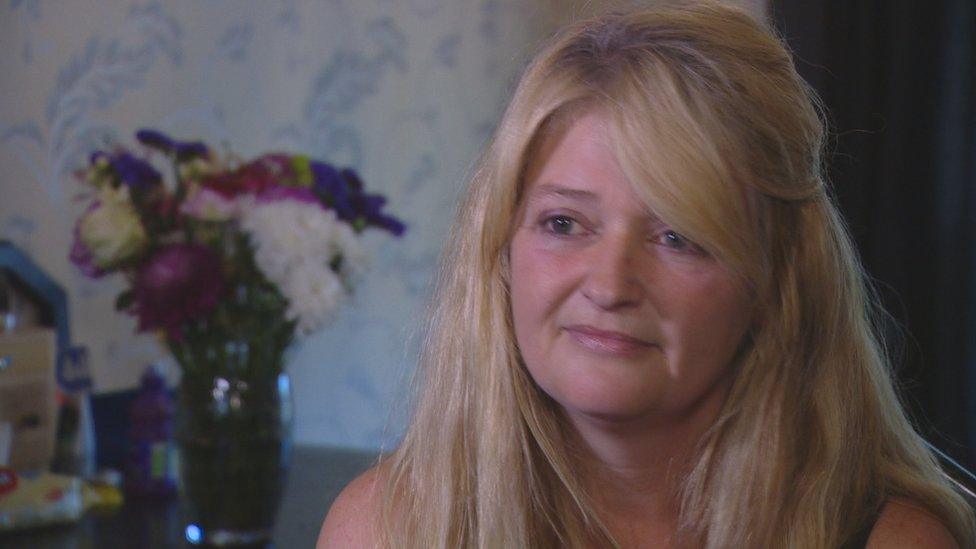
Jane Clark advised people to make proper checks before booking
A woman conned by a fraudster selling caravan holidays via social media has urged others not to fall for the scam.
BBC Scotland has spoken to dozens of people who paid for holidays in static caravan parks only to discover the real owner knew nothing about their booking.
Fraudsters using fake identities have booked families into caravans they do not own and taken the money.
Jane Clark, from Stevenston in Ayrshire, advised people not to believe what they read and make proper checks.
She booked a bank holiday weekend at the Craig Tara caravan site near Ayr and paid £180 plus a £50 deposit.
Holiday offer
Ms Clark said: "It was a last-minute thing and after a look on Facebook I saw an advert."
She sent messages to the Facebook profile and arranged to transfer money to a bank account.
Ms Clark was told to pick up the keys from the holiday park reception at 18:00 on the day.
Scammers are targeting people with fake deals for caravans
It was her son who noticed messages on the social media site warning that the holiday offer was a scam.
Ms Clark tried to send further messages to the woman she had booked with but was "blocked" and received no reply.
She said her three children were devastated and she had lost hard-earned money that she could not afford to lose.
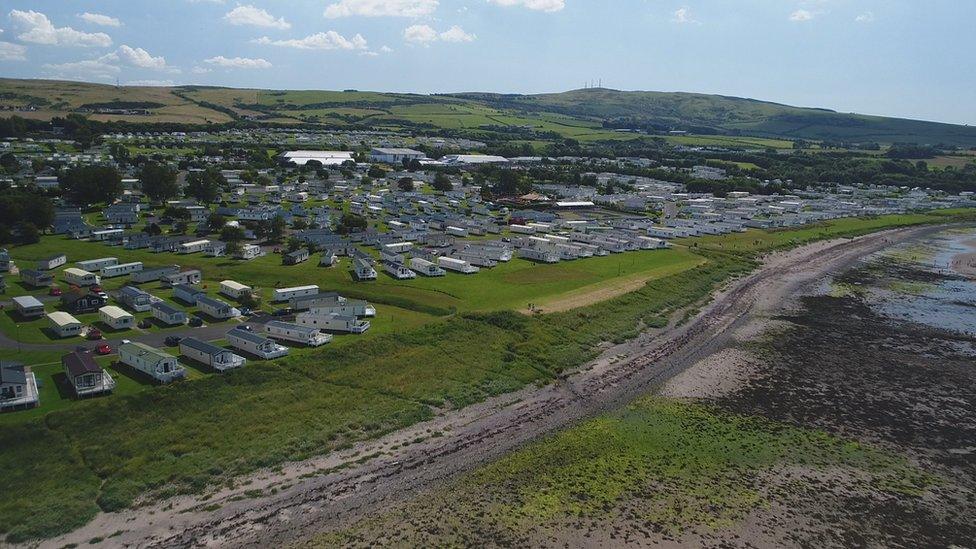
The Craig Tara site is run by Haven holidays
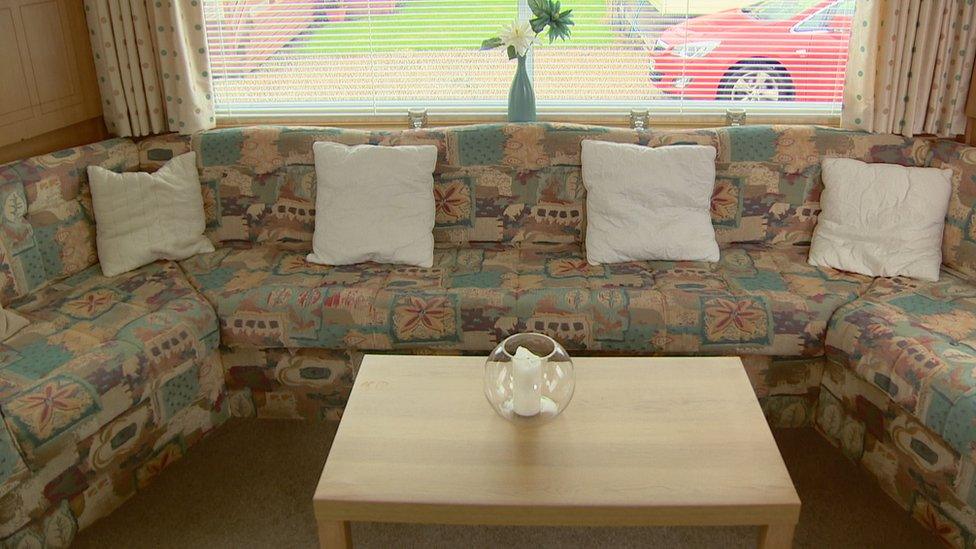
Holiday caravans were offered for rent by people who did not own them
Haven, the holiday firm that runs the Craig Tara site, said it had recently introduced state-of-the-art software that seeks to target and report suspicious pages and listings across social media sites.
A statement said: "Whilst we have only experienced a relatively small number of people who have been duped into making fraudulent bookings, we are committed to proactively targeting these sites where we can."
Haven advised customers to only book through "trusted channels" such as official websites, ABTA agents or affiliated third parties.
It said: "We would urge customers not to attempt to make bookings through social media channels."
A Facebook spokesman said: "Ensuring that people have a safe and positive experience when they use Facebook is our number one priority. This is why we have easy ways for everyone to report content and profiles that they suspect may break our Community Standards.
"Our global team of reviewers provide 24/7 cover around the world to ensure we can respond to these reports as quickly as possible."

Preying on vulnerable people
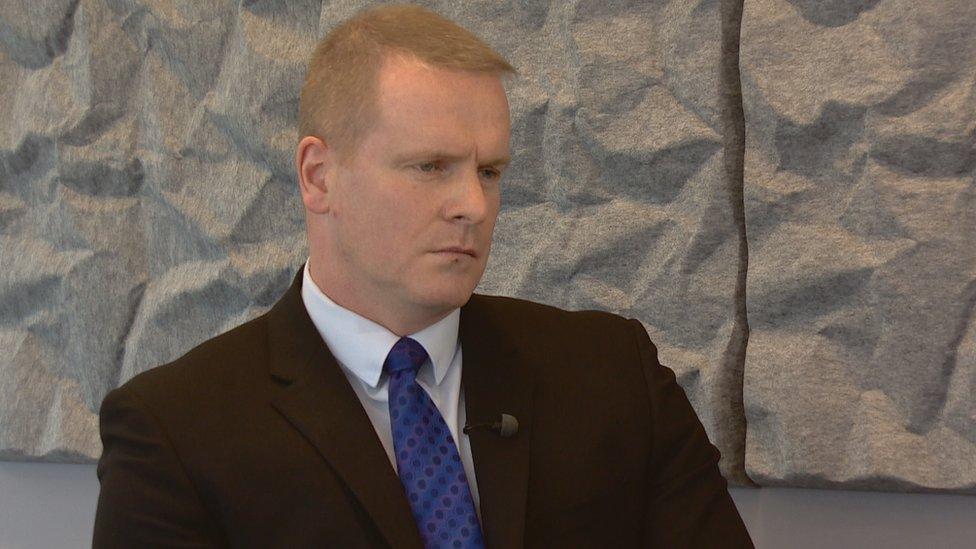
Chief Inspector Scott Tees said the problem had become more widespread
Chief Inspector Scott Tees, who is a cyber-crime prevention officer for Police Scotland. said the problem had become more widespread.
He said the police investigated all the cases that were brought to them but admitted it was often difficult to catch the people involved.
Ch Insp Tees said he understood that people were trying to get the best deal for their families but they were often leaving themselves vulnerable to scammers.
"They see an offer online that is very appealing to them, then they would book that with the best intentions, and this is what people are preying on," he said.
He advised people to take a step back if a holiday looked "too cheap" and ask "is this genuine?".
The police officer said people should try to speak to someone in person and be very careful if "alarm bells start ringing".

'It reflects badly on everyone'
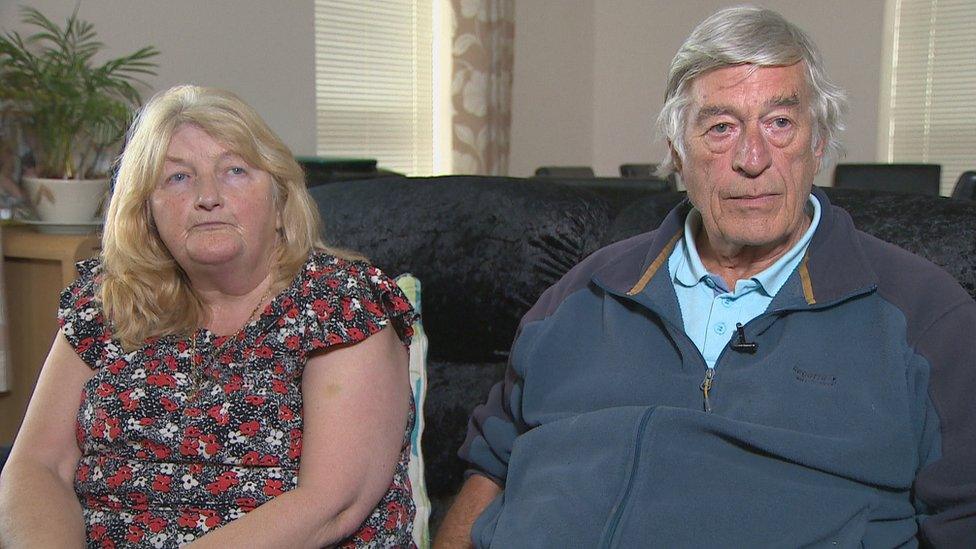
Sue and Dave Lloyd said the scam had spoilt their enjoyment of their caravan
Sue and Dave Lloyd, who live in Kilsyth, told BBC Scotland their static caravan was used by online scammers without their knowledge.
A woman had turned up at their caravan at Haggerston Castle in Northumberland and asked for the keys because she had booked a holiday via an online site.
Mrs Lloyd said she later found adverts from the same scammer on lots of social media and free advertising websites.
Family and friends
Her husband Dave said: "We are doing something that is perfectly legitimate and this guy is taking money under false pretences and causing all kinds of trauma to the people concerned.
"They are all excited about coming for a holiday and when they get there they find there isn't one.
"It does not just reflect on us, it reflects on everyone.
"It makes people become even more wary about booking private holidays rather than having to go to the big companies and pay a lot more money for the same thing."
Mrs Lloyd said the experience had spoilt her enjoyment of her holiday home.
"I am not interested in that caravan any more," she said.
"It just seems wrong to still let people stay there unless they are family and friends."
According to Mr Lloyd: "We were told it happens a lot just now but there is not a lot we can do about it."
'People are still doing it'
Jane Clark says that since she fell for the scam she has learned of lots of other people who have also been affected.
"It is still going on," she said.
"There are still people doing it. I don't know why they have not been caught.
"There are a few people on Facebook that do caravans and they are legitimate but I still don't think I would ever do it again through Facebook. Don't believe what you read."
For Ms Clark, there was a happy ending of sorts when the owner of another caravan on the site she had booked gave them a weekend for free to make up for their loss.
"I'm very grateful to her," she said. "It was a very nice thing to do."